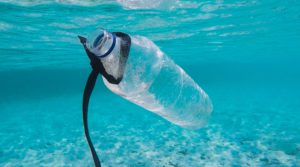Plastic stays in rivers for longer than previously thought
Macroplastic pollution can stay in river systems for much longer than previously thought, according to a new study published by the University of Leicester.
The researchers tracked 9o sample plastic bottle ‘tracers’ released into a tributary of the River Soar near Wistow, Leicester.
They found that these macroplastics – meaning plastic that is more than 5mm in size travel at an average speed of less than 0.01km per hour, meaning they can remain in the same place for a significant period of time.
The average travel distance was 231 metres in 24 hours, with the furthest distance recorded at just under 1.1km.
If not removed, not only may this pollution emerge in the ocean, but it can also negatively impact marine wildlife and human uses of river systems.
Polyethene terephthalate (PET), a common material for single-use plastic bottles, requires UV light to break down over more than 450 years.
Robert Newbould, a PhD researcher and lead author of the study said: ‘We were surprised at how easily the plastic bottles were trapped and their relatively low travel distances.
‘Our work supports other research that existing estimates of riverine plastic flux to the ocean may have been overestimated, but more research is needed to confirm this.’
Researchers recovered 96% of plastic tracers from the river system at the conclusion of the experiment, and also retrieved other litter to ensure a net reduction in macroplastic pollution.
Photo by Brian Yurasits







 Network
Network
